With the tremendous success of The Avengers,
Joss Whedon’s name will be forever associated with superheroes. In many
ways, however, it already was. Whedon tackled super-powered
protagonists in his work on Astonishing X-Men, Runaways, and, of course, Buffy the Vampire Slayer. So it makes sense that he would include one such character in Firefly (and I’m not talking about the self-proclaimed “big damn heroes”).
River
Tam is very different from the characters in those three aforementioned
series, whose powers are generally inherited or inborn. Instead, she
resembles Captain America and the Hulk, two experiments gone right and
wrong, respectively. She is a Super Soldier, a weapon designed and
crafted by a violent government during wartime. She is also a ticking
time bomb, her emotional control literally stripped away. In many ways,
River’s life can be seen as a superhero story with all of the fun
fantasy elements removed. In her life before the Academy, she was human
perfection: a prodigy with a staggering intellect, excelling at
everything she tried. This attracted the Alliance, who made her
superhuman and, in the process, made her unable to function in society.
Through River, the show explores the idea that becoming superhuman can
destroy one’s humanity.
Before
we get too far into these heavy philosophical themes, however, let’s
talk about River as a person. As a child, River was an extraordinarily
bright girl who could do anything; as Simon states, “everything she did
-- music, math, theoretical physics, even dance -- there was nothing
that didn’t come as naturally to her as breathing does to us.” She had
an active imagination and loved engaging in complex play-acting games.
Aware of her superiority, she was somewhat arrogant about her abilities.
When
she was fourteen, she decided to enrol in a government-sponsored
academy because it offered the most exciting and challenging program
available. While under their control, she underwent a series of
procedures to increase her psychic ability and turn her into the perfect
weapon, “ideal for defense deployment, even with the side effects.”
These procedures involved opening up her skull on multiple occasions so
scientists could scrape off bits of her amygdala, which Simon describes
as the filter in your brain that keeps your feelings in check. As he
observes, “She feels everything. She can’t not.”
So
it makes sense that she would have outbursts of the sort we see
throughout the series. When Jayne insults Simon, she gets retribution by
slashing him with a knife, which suggests that the constant emotional
onslaught may have damaged her ability to determine an appropriate
response. When she reads Book’s Bible, she can’t help but “fix” it,
resolving contradictions and false logistics while making evolution
theory work with the Christian worldview. Her inability to resist fixing
the Bible is probably a consequence of her loss of filters -- what with
it being considered bad form to suggest that the son of God was an
evolved ape instead of a divine being -- but it could also be seen as a
way of exercising control. Book tells her that “You don’t fix faith...
it fixes you”; however, River finds no solace in a methodology that she
finds inherently flawed. Maybe once it’s fixed, she can have faith in
it. Maybe fixing it will lead her to have some faith that she too can be
fixed.
It’s
difficult to tell precisely why River does the things she does. This is
partially because River rarely gets the chance to tell her own story.
Although River has the powers of a superhero, her brother, Simon, is
usually portrayed as the hero (and narrator) of her story. While she is
the one who encodes a distress signal, it is Simon who saves her from
the Academy. He gets the screen time, and it is his point of view that
filters our perception of his sister. This is supported by the fact
that, when River asks, “What am I?”, Simon’s responds, “You are my
beautiful sister.” The line is clearly intended to suggest that she is a
person with people who love her, but it also defines her identity in
relation to Simon.
What
is particularly frustrating about the show’s insistence upon making
River’s trauma an excuse to focus on Simon’s suffering is the fact that
River herself does it. In one of the very few moments during which River
is simultaneously lucid, introspective, and chatty, she gives us some
insight into her psyche. She tells Simon, “I remember everything. I
remember too much. And some of it’s made up, and some of it can’t be
quantified, and there’s secrets... But I understand.” This should be an
opportunity for the audience to learn something about River’s mental
processes, but what it becomes is something quite different. River
continues: “You gave up everything you had to find me; you found me
broken. It’s hard for you. You gave up everything you have.” What we end
up learning about River is that she, like the narrative, feels that
Simon is a victim.
Yes,
Simon has suffered tremendously for his decision to save River. He’s
lost his parents, his friends, and his promising medical career.
However, River has lost all of those things, as well as her mind and her
sense of self. The fact that the show seems to care so much more about
Simon’s suffering is problematic, at the very least.
In
1999, Gail Simone coined the term “Women in Refrigerators” to describe a
trend in comics in which female characters are raped, killed, or
depowered, often to allow for character development in the men who love
them. River’s storyline is a pretty cut and dry example of fridging, and
the writers (knowingly or not) literalize this by introducing her as a
cryogenically frozen girl stuffed in a box. Arguably, by the end of Serenity,
she has been defrosted, having discovered both her superpowers and a
kind of relief in the revelation of the secrets she once kept.
The
symbolism of the girl in a box appears to extend beyond a probably
unintentional reference to a sexist trope. In terms of superheroes, it’s
Kal-El in his spaceship, arriving on a planet whose inhabitants will
consider him a superman. In terms of Whedon’s later work, it’s a Doll in
her box, waiting to be programmed with a new personality. Like the
Dolls, River responds to triggers and commands. This loss of control is
one of the major issues I had with Serenity when I re-watched it for this analysis.
While
the series seems to depict River’s “thawing,” if you will, from a
person ruled by her trauma to a person with agency, the film regresses
her. In Serenity,
we learn that she can be prompted by subliminal messages to take out
entire bars full of patrons, and that the only thing that can stop her
is a verbal cue that causes her to fall asleep. We also learn that the
reason why the Alliance was searching for her over the course of the
series was to protect a secret that she accidentally and subconsciously
discovered. The filmic version of River generally lacks agency.
When
she does get to make a decision, it is to repay Simon for taking care
of her. She walks into a hoard of Reavers and kills them all, one
Alliance experiment destroying another. This is the moment that River
became an epic badass, but I would argue that it’s not the moment that
gives the most payoff for her character arc.
That occurs in the final episode of Firefly,
“Objects in Space,” in which we finally see the world from River’s
point of view. The girl who has been an object in her own story becomes
its subject, and we get to experience the world as she does. We hear the
thoughts of the other crew members, including Simon’s resentful
observation that he would be back with his friends at home if it weren’t
for her. We see River see Zoe and Wash in an intimate moment, and we
witness what appears to be her feeling some of their arousal. Finally,
we enter the world as River perceives it, where stepping on a twig
causes the floor of the deck to fill with branches and leaves, before we
come to realize that the twig was actually a gun all along. “It’s just
an object,” River assures us, “It doesn’t mean what you think.”
Over
the course of the episode, River continues to disrupt any kind of easy
conceptualization of objects. She does this, primarily, by melting away
as a girl and becoming Serenity. As she says, “I’m not on the ship; I’m
in the ship. I am the ship. River’s gone.” She becomes a disembodied
voice and gets into Jubal Early’s head, using her psychic abilities to
talk to him about his childhood and put him off balance. While she’s
doing this, she also wrangles the crew into carrying out a plan to get
rid of Early. Part of that plan involves revealing that she has been on
Early’s ship the whole time, just at the point when he has accepted that
she has actually become Serenity. She manages to trick him because she
lures him (and us) into believing in the mutable quality of objects. In
short, River uses the powers that have tormented her to save herself and
the crew, transforming her trauma into something positive.
Although
Simon does take this opportunity to take Early down, we see that, at
last, he is not the hero. River saves herself and it is Simon who gets
in the way and almost ruins her plan. Introduced as a vulnerable child
who has to be saved by her brother, River has developed into the
protector, telling Mal that Simon “takes so much looking after.” While
the variation on this line that she uses in Serenity
is effective, I find this one far more compelling. It’s an expression
not of gratitude from a traumatized girl to her devoted older brother,
but of fond exasperation from a mature young woman to the boy whose
spelling she’s been correcting since she was three. It’s a glimpse of
River as she might have been.
We
do, however, have to return to River as she is: proof of what happens
when you try to turn a person into a thing. One of the major questions
that arises from River’s storyline is whether or not she is actually
human. The scientists who experimented on her wanted her to become “a
living weapon.” They may have been successful, as evidenced by River’s
takedown of the Reavers and the sharp shooting she employed to save
Kaylee. Kaylee herself describes the mechanical exactitude required in
the latter situation as proof that River can’t be human: “Nobody can
shoot like that that’s a person.” Her superhuman abilities drive normal
people to view her as an Other.
What
proves River’s humanity is her repeated wish to be an object, an Other,
a something else. She hates her lucid moments, when she “functions like
a girl,” because the chaos created by her emotional instability will
return. When the crew sets foot on Miranda and finds the peaceful
corpses left by the Pax, River laments her sensitivity, saying, “Please,
God, make me a stone.” The problem isn’t that River is an object, but
that she isn’t; she couldn’t lose her humanity, and that seems to be
what torments her. She is Bruce Banner, always waiting for the return of
the other guy, Steve Rogers, irrevocably separated from everyone he
once knew, and Kal-El, forever listening to the ills of the world and
unable to cure even a fraction of them.
Verdict: Actual strong female character (almost despite the narrative)
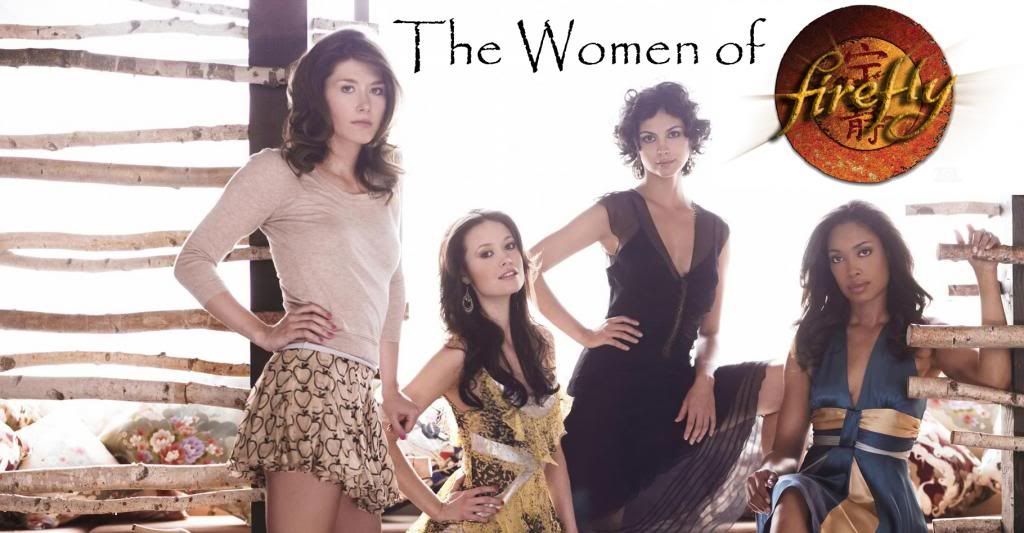
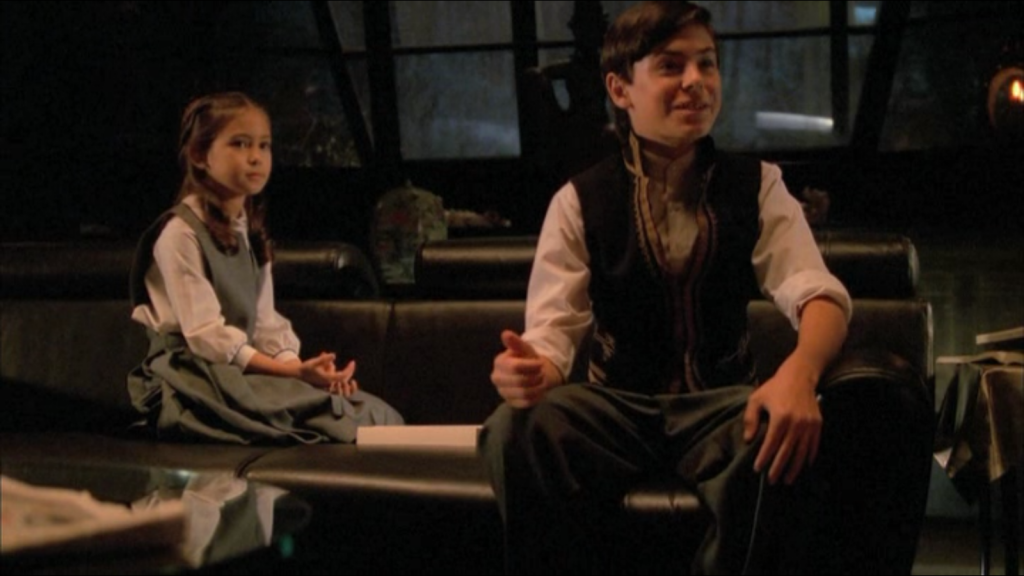
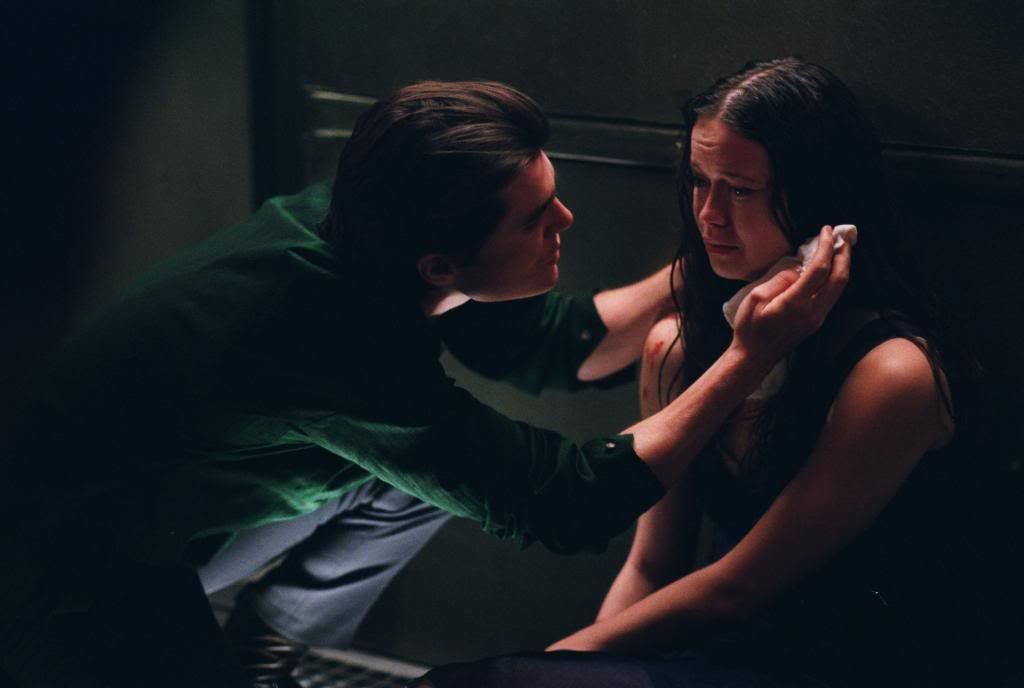
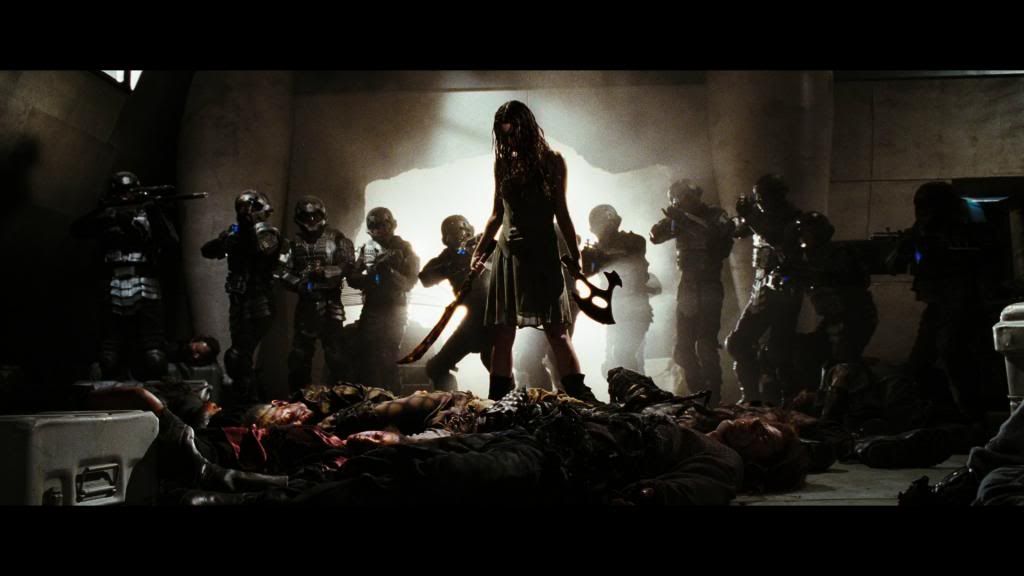
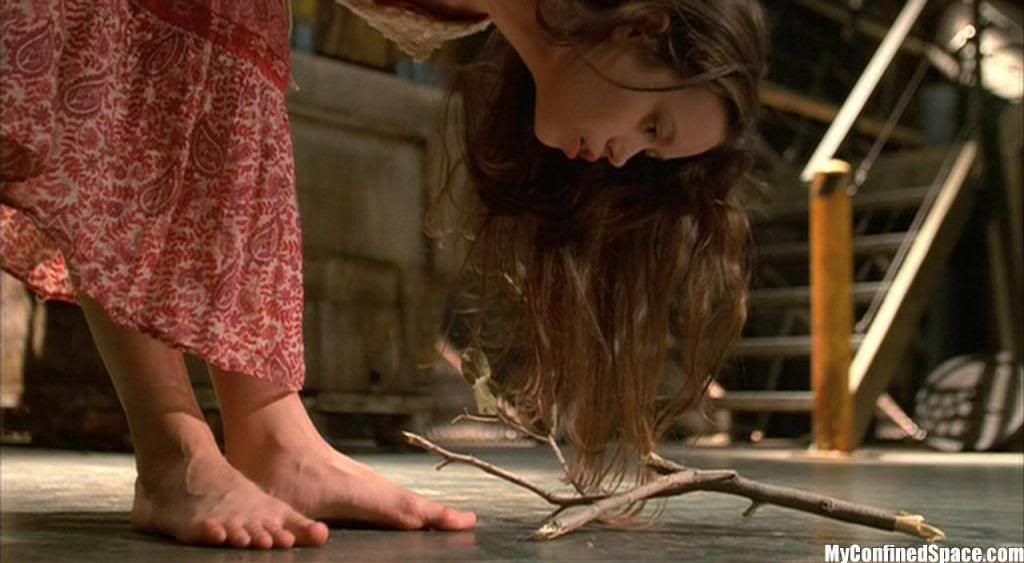
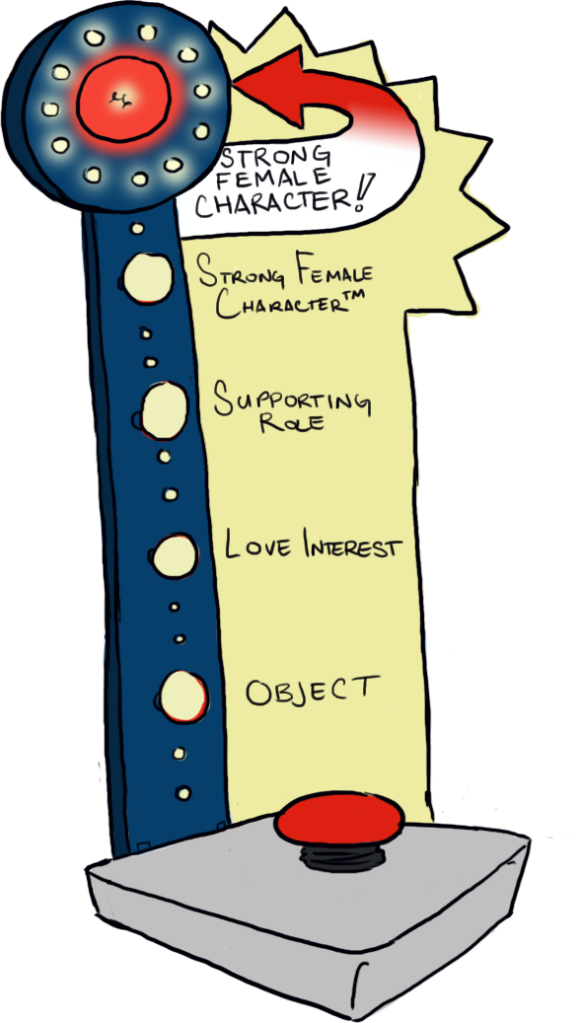
I've only ever watched one episode of Firefly, but I think right here you might just have convinced me to give it another go. I really enjoyed reading this. Thank you.
ReplyDeleteGreat article, im late to the party but an interesting insight. The next time I watch these I'll be looking with fresh eyes
ReplyDelete